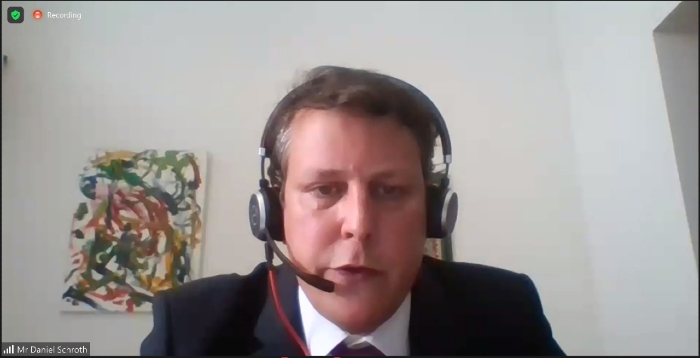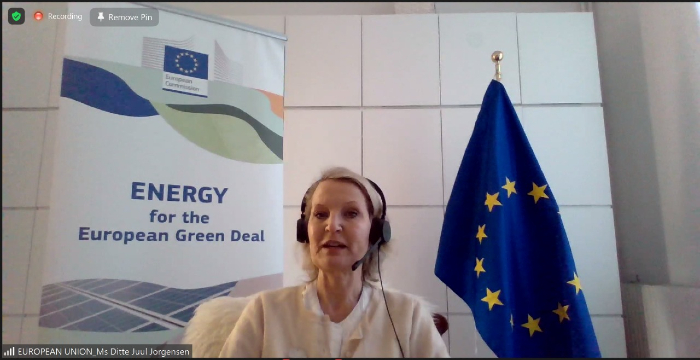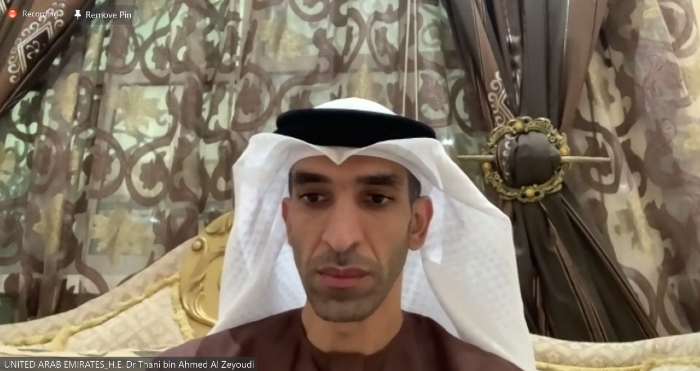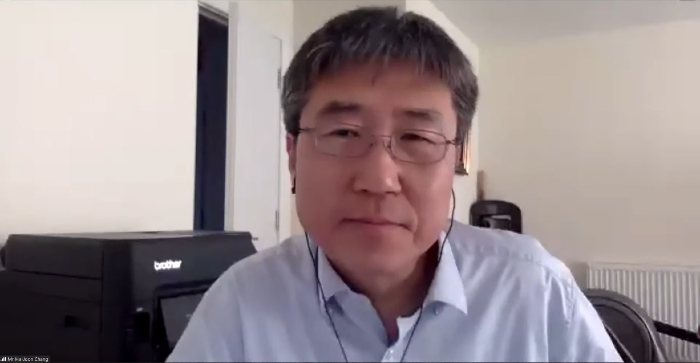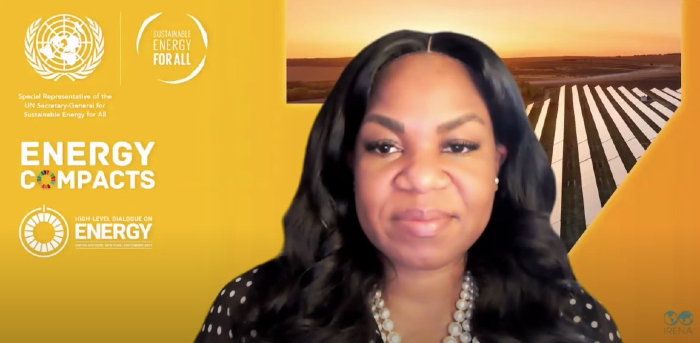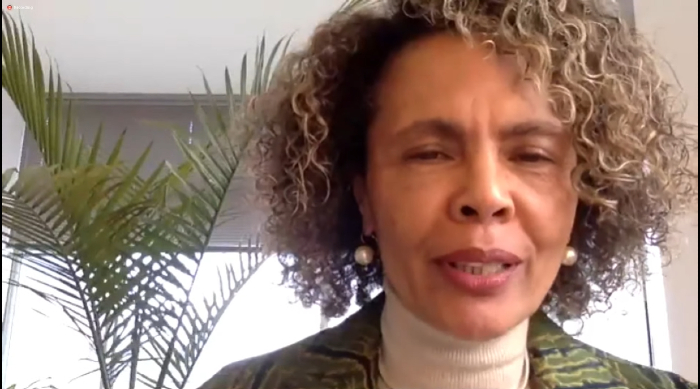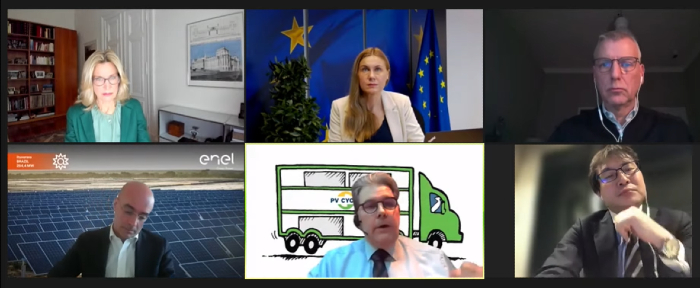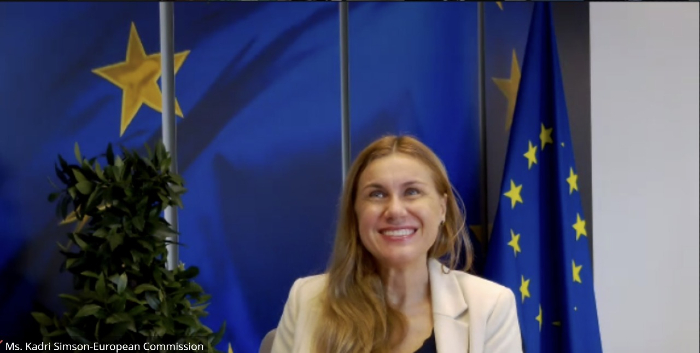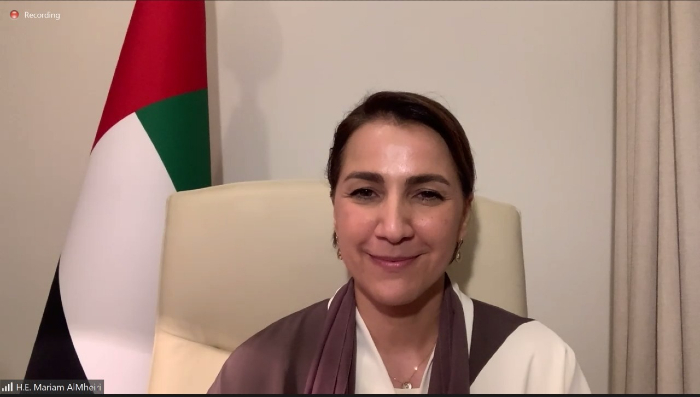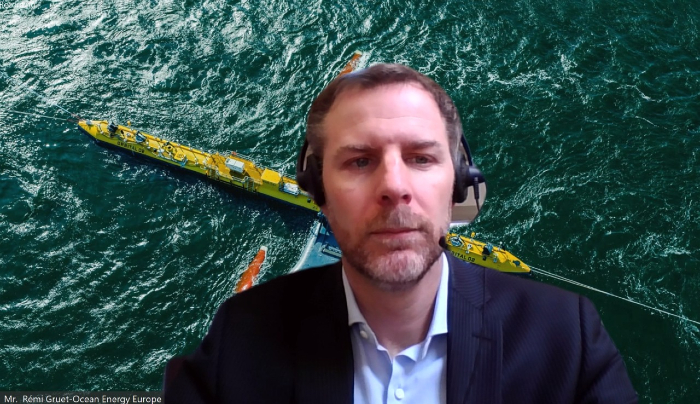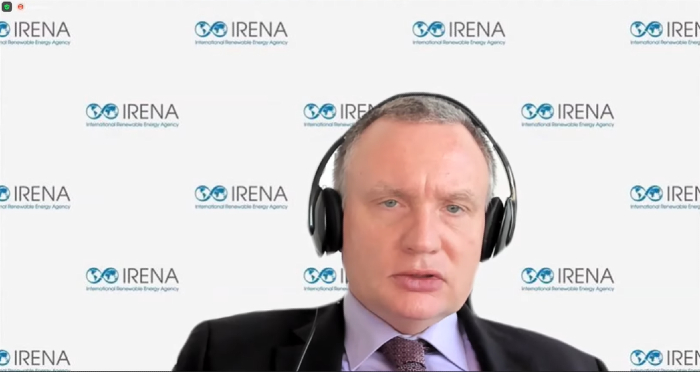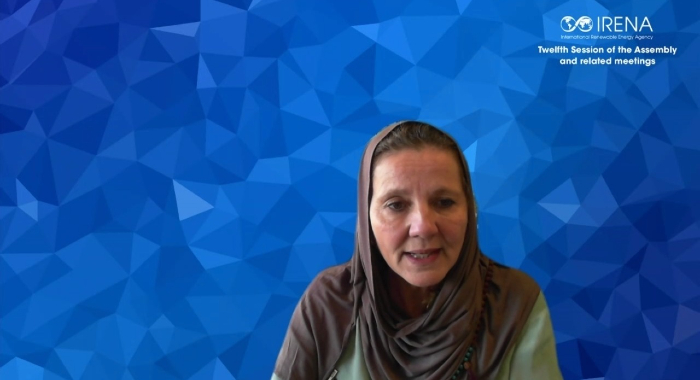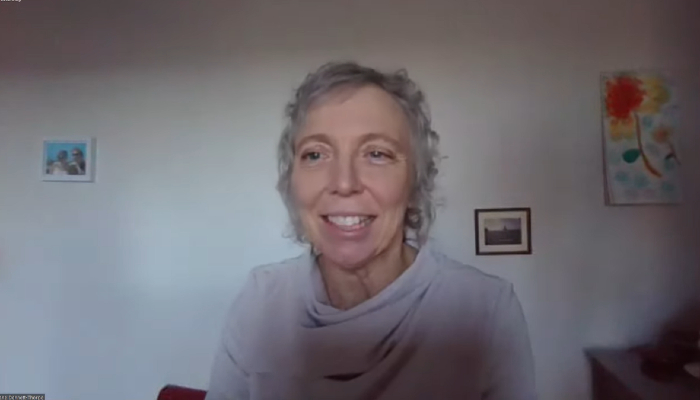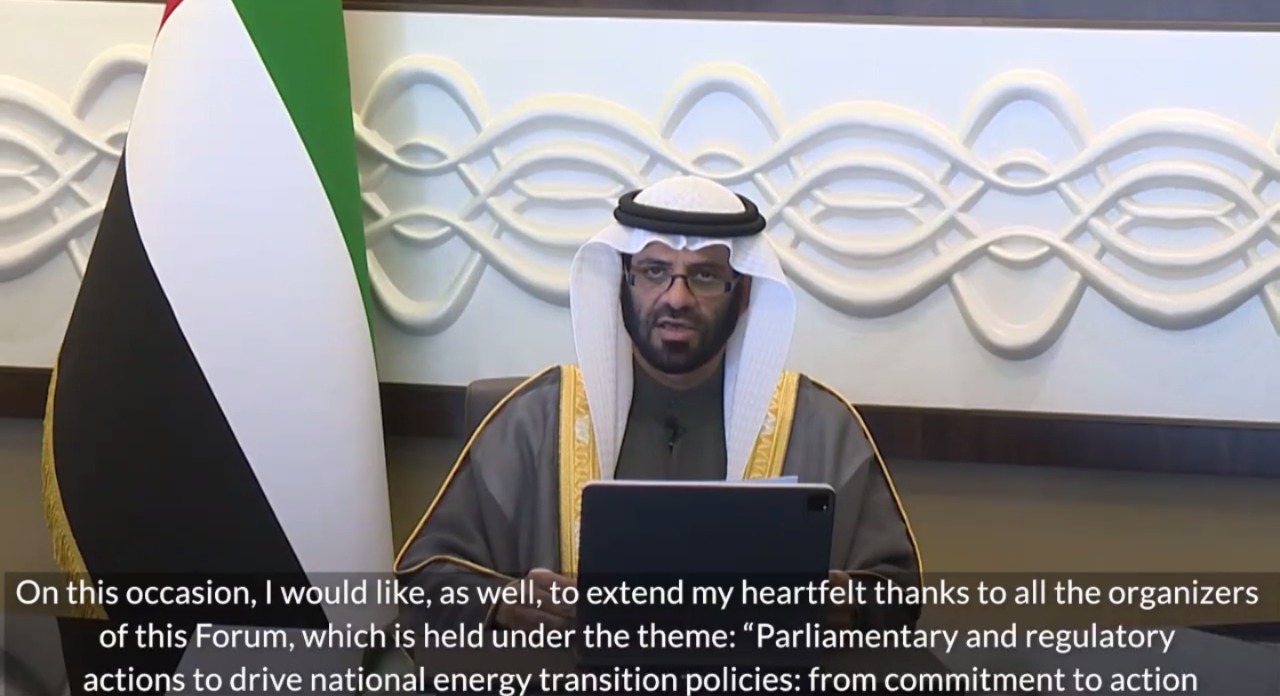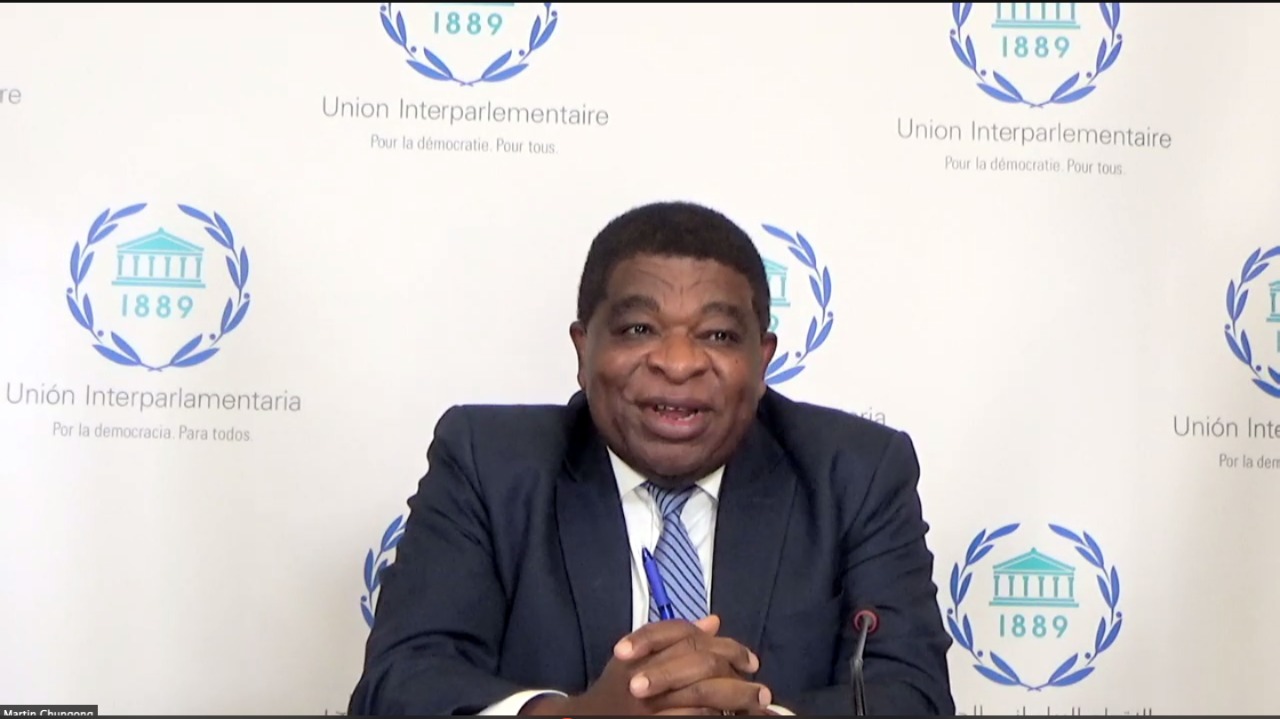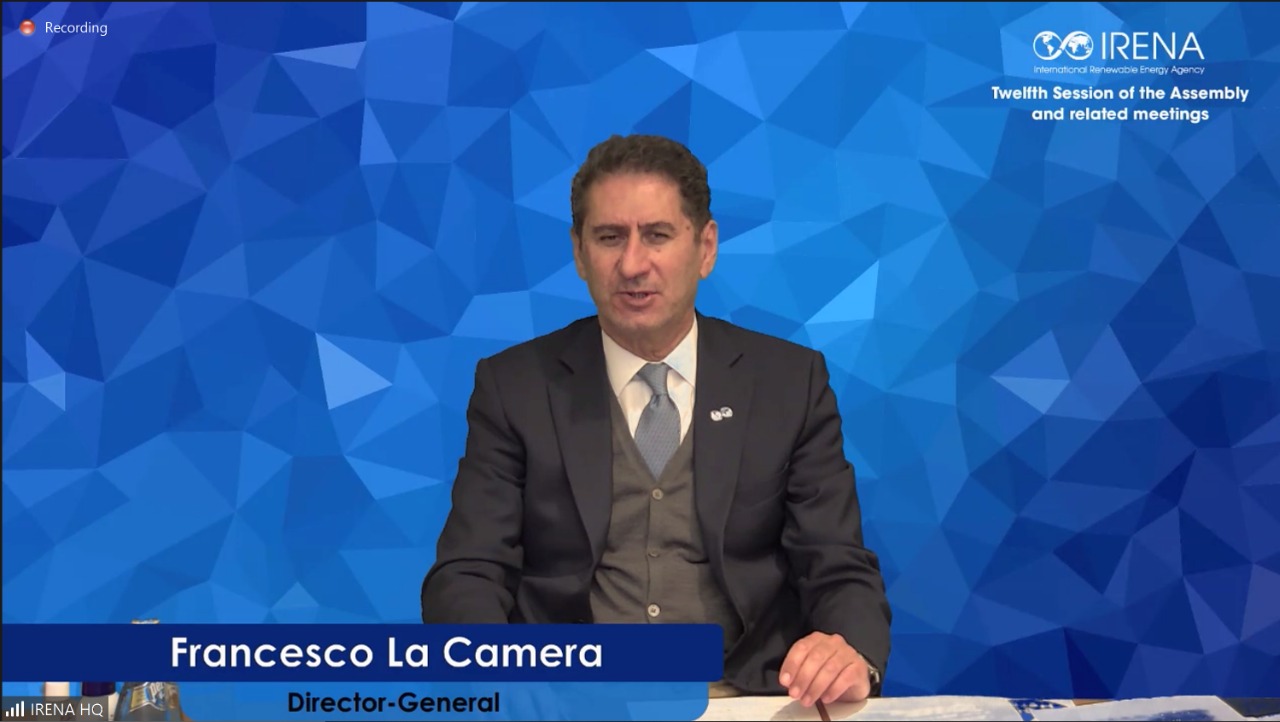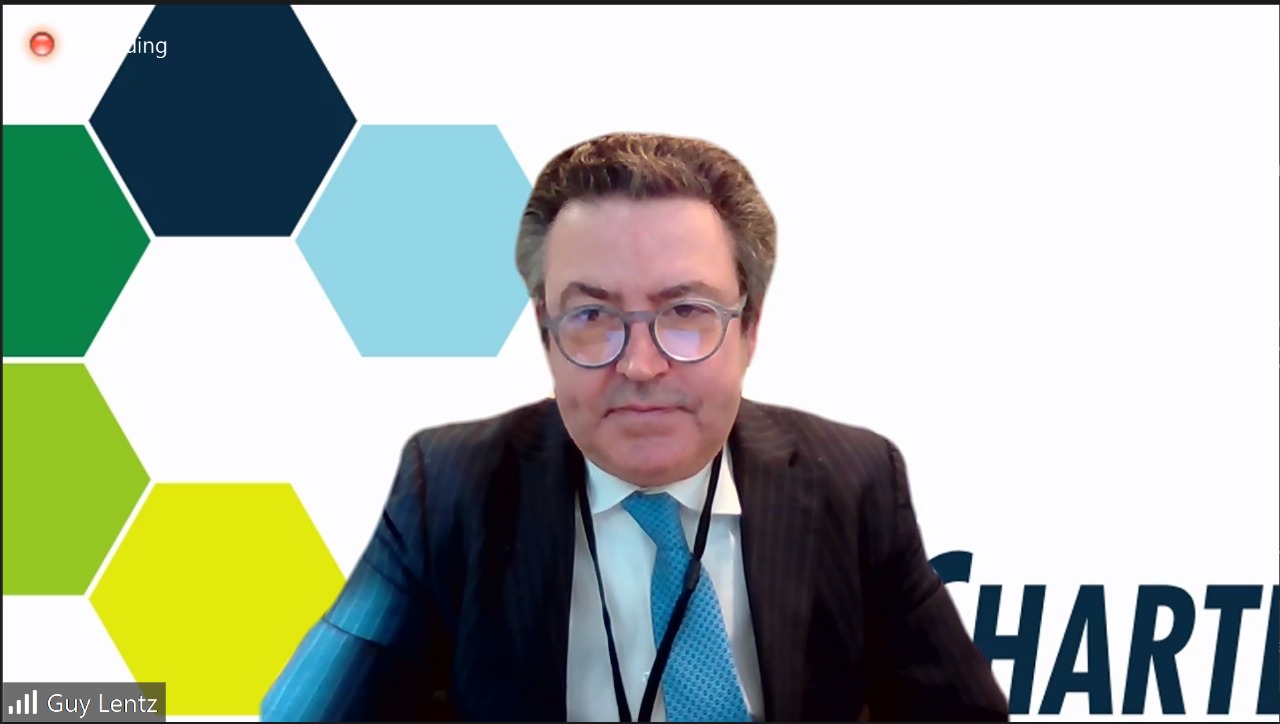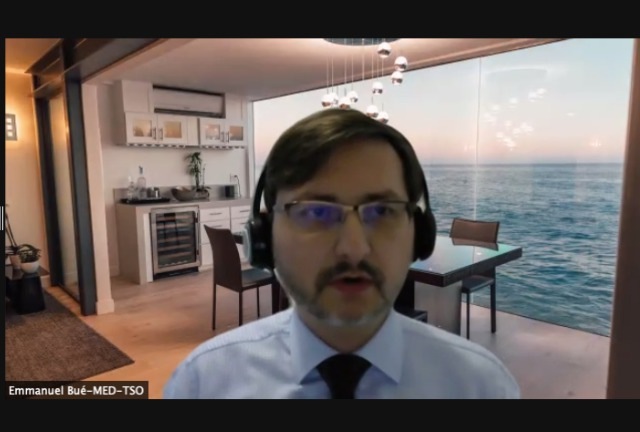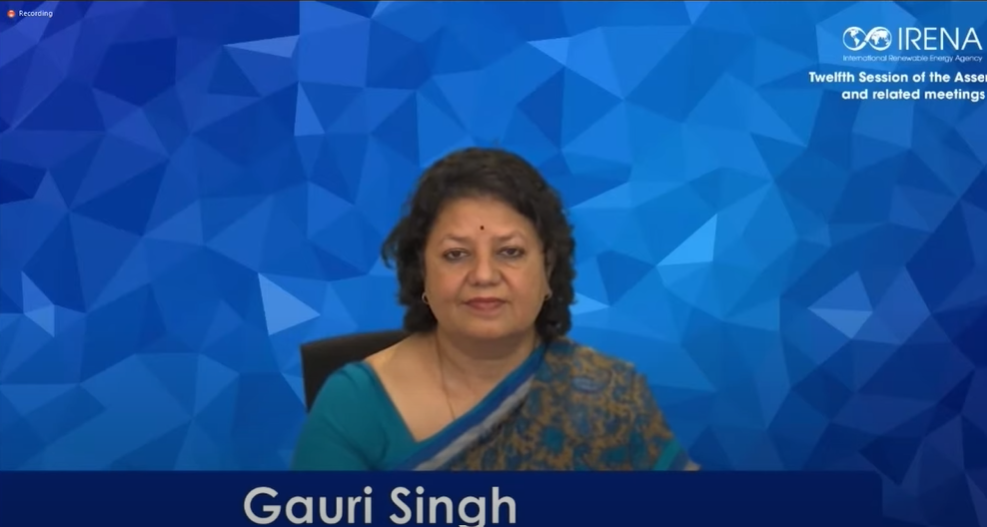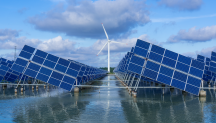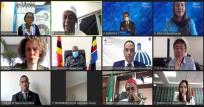

IRENA 12A: Pre-Assembly Live Coverage
Newsletter
IRENA Pre-Assembly stakeholder and ministerial meetings took place on 13th January and 14th January 2022. See the full schedule here.
The sessions were live-streamed on this webpage, all recordings can be accessed below.
Watch the Ministerial Meeting on a Just and Inclusive Energy Transitions in Africa - Promoting development and Industrialisation session:
14 January 2022 | 4:30 PM - 6:30 PMHighlighting the mutual consensus between the panelists, Mr. Daniel Schroth, Acting Director for the Department of Renewable Energy and Energy Efficiency, African Development Bank, said that “Energy transition provides tremendous opportunities for Africa. However, there is an increasing importance for clear policies and frameworks, private sector investments, correct data and evidence, enhanced regional integration of power systems, support for project development and joint investments from public-private sectors to fastrack progress for the African continent."
Daniel concluded his speech by quoting Nelson Mandela, “It only seems impossible until it’s done.” Go to Twitter and show us how you #chooseaction
Sharing #China's perspective & role in #Africa's #EnergyTransition, Ms. WEI Xiaowei - Deputy DG, Dept. of International Cooperation, National Energy Administration:
— IRENA (@IRENA) January 14, 2022
"China & Africa are cooperating closely in #cleanenergy & regional grids interconnection."#IRENA12A #ChooseAction pic.twitter.com/99EHJvkFNs
"Innovation and technology play an important role to achieve sustainable, affordable and reliable energy systems," said Ms Nadja Haakansson, Managing Director for Africa, Siemens Energy. She continued saying that we all need to acknowledge that Africa is diverse and because if that, the continent cannot be addressed with a single approach. "Massive investment into energy is required in the continent, accompanied with policy frameworks and incentives to encourage it is crucial," she highlighted.
Alain Ebobissé, CEO of Africa50 Investment Group said: "Pushing Africa's energy transition forward starts with project development. That's why enhancing projects' bankability is crucial to boost green economy. Africa must #ChooseAction to implement renewables projects at scale and with speed."
See how IRENA helps to prepare projects to be bankable and drive investment as a part of the CIP Initiative.
Alain Ebobissé, CEO of @Africa50Infra:
— IRENA (@IRENA) January 14, 2022
"Pushing #Africa's #EnergyTransition fwd starts w/project development. That's why enhancing projects' bankability is crucial to boost green economy. Africa must #ChooseAction to implement #renewables projects at scale & w/speed."#IRENA12A pic.twitter.com/xBQ0VaoZKg
Ditte Juul Jorgensen, Director-General of Energy of the European Commission said that over the last five years, EU have invested €3bn in energy aid to African countries which has resulted in an additional 11GW of renewable capacity and given clean energy access to 18 million people. “Our renewable energy industry is ready to invest in Africa, given there is a competitive market. We are committed to support African countries in the clean energy transition,", she underlined. Main obstacle to the larger investment in renewables is the cost of capital and public finance. "To bridge the gap, we encourage private sector investment in pursuit of open and competitive markets," she concluded.
Commenting on how African countries can learn from the UAE to build the energy industry, H.E. Mr Thani Al Zeyoudi, Minister of State for Foreign Trade, UAE pressed the importance of having a vision. He stated that 2021 was a pivotal year for the UAE, as far as renewable energy is concerned. UAE has invested billions of dollars in 17 countries to pave the way for energy transition. “We are now accelerating investments in Africa on energy and solar electrification. Africa has huge potential for FDI, as far as renewable energy resources are concerned We will continue to explore potential investment opportunities in Africa,” he concluded.
The high-level discussion continues with Ministerial interventions.
"In the solar market, Morocco remains competitive compared to other countries as it has a progressive regulatory and contractual framework coupled with local integration and an optimal distribution of risk," says Leila Benali, Ministry of Energy Transition and Sustainable Development.
Speaking at #IRENA12A Ministerial, Morocco Min. @LeilaRBenali says:
— IRENA (@IRENA) January 14, 2022
"In the #solar market, #Morocco remains competitive compared to other countries as it has a progressive regulatory & contractual framework, coupled with local integration & an optimal distribution of risk." pic.twitter.com/1GjKjA9dxY
Speaking about the potential policy needs for industrial development in Africa, Professor Mr Ha-Joon Chang of University of Cambridge makes the case for deliberate protectionist policies that support local industrial capacity development. It is the theory of “infant industry protection” he says saying that nobody would have believed 40 years ago that domestic car maker Hyundai could have ever produced more cars than powerhouse US car makers Ford and General Motors. Yet in 2009 Hyundai produced more cars than Ford and in 2015 it produced more cars than General Motors. “If you had told people that Hyundai would make more cars than Ford and GM when it was making 10 000 cars a year, people would have tried to put you in a mental hospital”.
He went on to underline that the transformation of energy can happen with the right policies. But industrialising and diversifying economies need nurturing of innovation and domestic markets. “Industrialisation is a deliberate policy. You must have long term strategies that encourage diversification,” he added.
Speaking on industrialisation in Africa, Ms Damilola Ogunbiyi, Special Representative of the UN Secretary-General for Sustainable Energy for All, said that “We need to look into what countries need and we cannot achieve this if we leave Africa behind." She continued underlining that to reduce dependency, solar energy components such as batteries, inverters and solar panels can actually be manufactured in the continent.
Mr. Yumkella invited the fire chat session participants to give their views.
Vera Songwe, UN Under-Secretary-General and Executive Secretary of the Economic Commission for Africa, explained that Africa has a lot to offer the energy transition - not only the renewable energy resources themselves, but also the human resources. Investment must be mobilised to make sure Africa's industries are ready to support the supply-chain of renewable energy sector. "It will not only be Africa's contribution to the green energy transition, but also to the world's economy," she says.
In her speech, Cristina Duarte, Under-Secretary-General, Special Adviser on Africa to the United Nations Secretary-General, pointed out the significant issue in African energy transition is financing. Stating the facts, she said, “ Africa accounts for just 4% of global power. Over the past decade the total solar additions amounted to 8.5 GW across all of Africa. New York city alone uses an average of 8-12 GW. We need to do better. We need investment in research and development of the renewable resources to build optimal solutions for the region.”
In his message at Ministerial Roundtable on Africa, Kevin Kariuki, VP, African Development Bank, highlighted that “ADB’s Investment portfolio is over 80% renewable since 2016. Green finance products like SEFA (Sustainable Energy Fund for Africa),a blended finance facility for commercial investments, along with flexible debt solutions will pave the way forward in Africa.” The newly launched report states structural policies and socio economic changes that will also help in post COVID-19 recovery in Africa. Concluding his message, he said, “Support of countries and partners such as IRENA could underpin the African green deal, thereby enabling Africa to lead the way as a principal source of energy on the continent.”
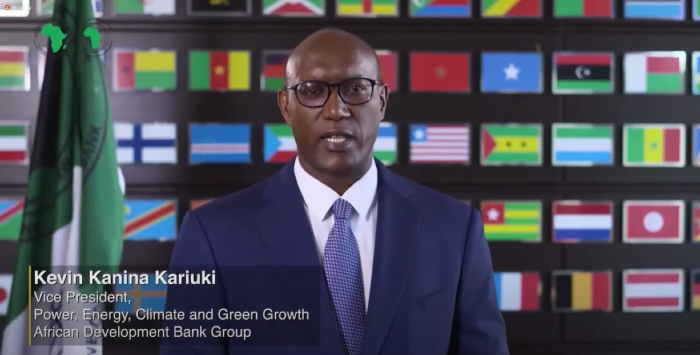
Highlighting a substantial increase in #Africa’s share of global #renewableenergy investments, @IRENA DG @flacamera says:
— IRENA (@IRENA) January 14, 2022
“Deployment policies must go hand-in-hand with plans to integrate #renewables into power grids & other energy delivery systems."#IRENA12A #ChooseAction pic.twitter.com/FsXaTdQMQ2
The Director-General Francesco La Camera opens the session by presenting the findings of IRENA new report, Renewable Energy Market Analysis: Africa and its Regions, which lays out a pathway to a renewables-based energy system in the continent. The report was developed in collaboration with the African Development Bank.
The Director-General makes it clear that a global energy transition with Africa's participation and development is crucial. A comprehensive policy framework like an African Green Deal will benefit all African, provided it is designed to the different nations in the continent. By doing so, Africa can diversify its economy, create jobs for millions, and achieve a resilience for climate challenges. The Director-General also hopes the report's findings to be valuable for the planning of Africa's energy transition pathway, of which IRENA stands ready to support.
See the press release
Watch the recording of the The Youth Forum - Youth-led Solutions to Accelerate the Energy Transition and Achieve Climate Objectives session
HE Shamma bint Suhail Al Mazrui @shamma, Minister of State for Youth Affairs @UAEMCY, delivered a strong message on the pivotal role that the youth play in building towards a more sustainable future at the 2022 @IRENA Youth Forum as part of IRENA’s 12th Assembly. #IRENA12A pic.twitter.com/d9RQcC7EsG
— UAE Mission to IRENA (@UAEMissionIRENA) January 13, 2022
Watch the recoding of the Public-Private Dialogue Renewable Energy and Circular Economy: Focus on End-of-life Management of Renewables session
The youth discussion continues. Esther Wanza, RAYNOW Energy pointed out that funding is one of the biggest obstacles for young aspiring entrepreneurs to start businesses around clean energy. Governments and corporates should come forward and ease funding process, she concluded.
Meanwhile, Ibrahim Togola, Chief Executive Director, Access had a strong message to the Youth gathered at the event: “You are much more capable and connected than previous generations. There is no limit to what you can achieve. Be surrounded by people who inspire you to always look up and recognise that change is possible”.
Follow IRENA's #ChooseAction campaign and contribute on social media.
Speaking at #IRENA12A Youth Forum, Zagy Berian - Founder, Society of Renewable Energy, says that #EnergyTransition is a major issue in #Indonesia.
— IRENA (@IRENA) January 13, 2022
"Think tanks are being now set up to bring youth together to raise awareness about energy transformation & the use of #renewables." pic.twitter.com/Y9soKThHQL
As a part of his contribution to IRENA’s Public-Private Dialogue, Andreas Nauen, CEO, Siemens Gamesa Renewable Energy said that 80-90% of materials used in making wind turbines are recyclable. Shedding light on the private sector efforts, he added, “We are addressing the problems of non-recyclable components. Siemens has made great progress in producing fully recyclable blades.” Concluding his message, Andreas highlighted that their goal is to make wind turbines fully recyclable by 2030.
Jan Clyncke of @PVCYCLEonline, suggests that retrofit activity is one of the 1st steps to be taken to deal w/ the 50K tonnes of #Solar waste in Europe. The other step is strengthening the recycling industry, which stands ready to support the #circulareconomy of #renewableenergy. pic.twitter.com/IwazWCIL0p
— IRENA (@IRENA) January 13, 2022
Nobuyuki Kikuchi, Director, Resource Security and Economic Affairs. MOFA, a panelists at the Public-Private Dialogue session talked about how Japan is supporting circular economy for renewables. He opened his remarks saying that for Japan, actions are most important - it's efforts that count, not slogans. Therefore, he continued, 'awareness is important, it is a starting point of looking into the challenge'. 'Technology is also important', he continued saying that technology exists but in many cases efforts are not well connected to each other so it is difficult to scale up the capability. Finally, he added that the commercialization is important, "if it doesn't pay, it is not viable in business terms and is not going to be sustainable" so proper market mechanisms and transparent market rules need to be created by governments.
Giovanni Tula, Head of Sustainability of @enelgreenpower says that the challenge to improve end-of-life management of #renewableenergy materials & components is the lack of network & market. That is why policies must support #circulareconomy to keep up w/ the increasing needs. pic.twitter.com/4dRHAry8DA
— IRENA (@IRENA) January 13, 2022
“To promote the use of renewable energy in a sustainable manner, it is crucial not only to accelerate its introduction but also to consider beforehand the issue of its eventual disposal,” says Japan’s Kiyoshi Odawara, State Minister for Foreign Affairs. “It is important to establish transparent rules under the strong leadership of each government as well as the efforts of the private sector, in order to ensure the circular economy goes beyond being just a concept.”
In his intervention at the 5th Public-Private Dialogue on the sidelines of #IRENA12A, Kiyoshi Odawara, State Minister of @MofaJapan_en, says that a #circulareconomy represents a significant opportunity for a #Sustainable economic growth in the post #COVID19 world. pic.twitter.com/VpZag4nBA7
— IRENA (@IRENA) January 13, 2022
The second session of the Public-Private dialogue started with the contribution from Kadri Simson, Commissioner for Energy, European Commission. She spoke on how renewable energy sector is becoming more sustainable, saying that “The EU is making sure end of life cycle is considered in every model manufactured under this sector in terms of design and energy labelling."
She continued highlighting that the European Union will face new challenges in terms renewable energy waste management as it ramps up deployment ambitions in the coming decade. “In the next five years 38 GW wind power capacity will need to decommission or upgraded in Europe, and by 2026 30 GW of solar PV will be more than 15 years old. That is why the EU Commission is already incorporating circular economy principals into our energy policies.”
The first part of the Public-Private Dialogue concluded with the participants giving quick recommendations for policy makers to advance the end of life management of renewables, encouraged by the moderator Melinda Crane. They all spoke about standardization, regulations and legislation to create the level playing field as well as ensuring long-term revenue visibility and creation of competitive markets.
At the Youth Forum, during her welcoming remarks, H.E. Mariam bint Mohammed Saeed Hareb Almheiri, Minister of Climate Change and Environment, UAE talked about the important role that youth play in climate action, emphasising that the UAE will rely on young innovators to achieve its 2050 net zero target. Her Excellency also promised the youth that the UAE will have the highest level of youth participation in delegations to COP at COP28 that the country will host in two years.
Today's final event is the 3rd IRENA Youth Forum. The 2022 edition of the Forum will provide an opportunity for the participants to discuss the role of young people in identifying and developing solutions that can promote and accelerate renewables-based energy transitions to achieve climate targets and other sustainable development goals.
"Today, our goal is to bring together young voices, make ourselves heard, take action, and be given a seat at the table as The New Generation of Decision Makers," said Lydia Sanz Lozano opening the 2022 the Forum as moderator.
With regards to the circular economy, whoever puts the right financial package in place will see the projects flourish. Canada, the UK, the US, and France are leading on the front at the moment. Countries with good environmental legislation will definitely do better than others, said Rémi Gruet, CEO, Ocean Energy Europe.
Watch the Legislators Forum - Parliamentary and Regulatory Actions to Drive National Energy Transition Policies: From Commitment to Action:
The first session of the Public-Private Dialogue gathered leading industry associations representatives who are going to talk about what they are doing about end of life management of renewables already and give us insights in the future of circular economy. The session is moderated by Ms Melinda Crane, Chief Political Correspondent at DW TV.
The 5th Public-Private Dialogue serves as a key platform for policymakers, legislators, and members of the Coalition for Action to exchange views on circular economy and end-of-life management of renewables, as well as what actions are needed from governments and the energy industry to accelerate global progress towards unlocking the benefits of a truly sustainable renewable energy sector. The session Public-Private Dialogue Renewable Energy and Circular Economy: Focus on End-of-life Management of Renewables has just started with Francesco la Camera, IRENA Director-General commenced the dialogue by welcoming the attendees and by pressing that, “Key actions from leading global industry associations will be critical to managing the end-of-life of renewables."
.@IRENA DG @flacamera opened the 5th edition of the annual Public-Private Dialogue on Renewable Energy & Circular Economy, by emphasising that key actions from leading players in global industry are critical to managing #renewables' end-of-life.
— IRENA (@IRENA) January 13, 2022
#IRENA12A #CoalitionforAction pic.twitter.com/hhXILf2vTP
In summary, during the panel discussion at the Legislators forum themed “Parliamentary and Regulatory Actions to Drive National Energy Transition Policies: From Commitment to Action,” the members discussed the importance of shifting the energy transition to the implementation phase of national and international commitments. While most of the panelists agreed on the importance of a strong policy framework to achieve energy transition goals, it was also pointed out the governments aren’t doing enough yet. Kandeh Yumkella, MP, Sierra Leone, who moderated the debate, emphasised that legislators and parliamentarians must work together to increase the deployment of renewable energy in this decade of action. Yumkella gave his own spin on the IRENA12A theme ‘Energy Transition: From Commitment to Action’: “I would say from commitment to kWh for real people in real places."
Bärbel Höhn, Chair, Global Renewables Congress speaking at the Legislators Forum brought up an example of Germany. In 2020 more than 50% of German electricity was coming from renewables and that was nearly 250TW coming form renewables". The new government has an even more ambitious goal, she pointed out, "for 80% of electricity to be coming from renewables" She continued underlying the importance of action and participation of all, decision makers and people alike, and that the ambitious target "is a success of parliamentarians who pushed the government to be more ambitious and support renewables".
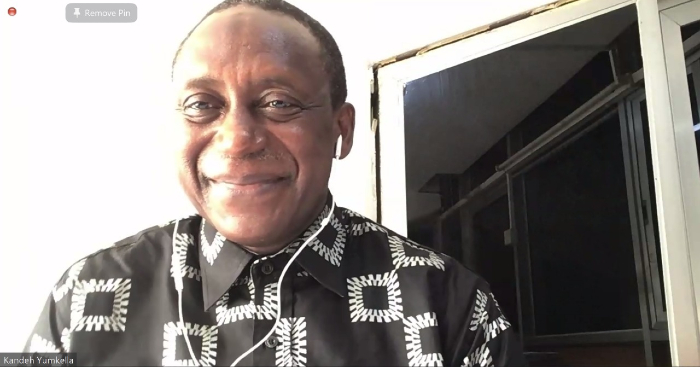
At #IRENA12A Legislators Forum, @vlaparl Member @gryffroy, highlights well-functioning cooperation across all levels of governance as a key element of success.
— IRENA (@IRENA) January 13, 2022
“Subnational & local gov'ts & authorities face the biggest impacts of #climatechange & offer the biggest solutions.” pic.twitter.com/EAdmQjadZk
Sharing the Indonesian experience, Member of Parliament (@MCB_DPRRI) Mercy Barends highlighted the country’s geography as one of the main challenges to achieving NDC targets. “Indonesia consists of around 17,000 islands making it very difficult for us to craft policy-making for continental provinces and archipelago provinces. We have to be prudent in developing the energy transition throughout Indonesia.”
Watch the recording of the Long-Term Energy Scenarios for Developing Energy Transition Plans in Africa - Featuring Regional Power Pools session:
Kandeh Yumkella, MP, Sierra Leone opened a panel discussion asking the panelists about the challenges they are facing in taking steps towards the realisation of the climate path and what have they done on their country level to address them. "It is important to share ideas and knowledge between regulators", he added.
“In today’s session we heard the importance of dialogue, transparency and clarity regarding the process of developing scenarios and the need for strong stakeholder engagement,” says Dolf Gielen, Director of IITC at IRENA in concluding remarks at the Long-term Energy Scenarios in Africa session. “Thanks to the abundance of national resources and decreasing installation costs, renewable energy has become the backbone of many national long-term energy plans.”
"IRENA estimates scaling renewables along the 1.5° pathway provides boost in global GDP that is 2.4% more than planned energy scenarios over the next decade. This aligns with the needs of a post Covid recovery" underlined Rabia Ferroukhi, Director, Knowledge Finance and Policy Center, IRENA in her scene-setting presentation. She is underlined that transitioning to renewables creates jobs and provides other socio-economic gains. Yet, it is crucial for the transition to be just to reap the full benefits of the transition. See the latest Jobs report
In her keynote presentation at the Legislators Forum, Jane Dennett-Thorpe, Deputy Director Decarbonisation & Energy Transition, Ofgem brings up the decade of action and the fact that renewables form a backbone of the clean energy system. "The entire energy system must become carbon negative, our commitment is for our power system to be fully decarbonised by 2035", she said reffering to the UK current plans. "How do we bring consumers into it?" she asked underling the importance of leading the inclusive energy transition. She also brought up the theme of COP26, under the UK presidency, 'Turning ambition to action'. "We should see the opportunity to enable legislators to be a part of that change', she concluded. Participate in our conversation on Twitter via #chooseaction campaign.
"Governments in many countries are in the front seat driving the decarbonisation process. But once the policies are in place, the legislators and regulators have a major role to make energy transformation happen", said Alberto Pototschnig, Executive Deputy Director, Florence School of Regulation, during his keynote speech at the Legislators Forum.
“We all agree that renewables play a major role in decarbonisation,” he said, highlighting three major challenges that need to be addressed for greater penetration of renewables. “We need to have a more flexible energy system to accommodate the variability of renewables, shield consumers and price revenues from price volatility and protect vulnerable consumers. Fortunately, technological progress and digitalisation provide the opportunity to meet these challenges."
Hamad Ahmad Al Rahoomi, First Deputy Speaker, Federal National Council, United Arab Emirates, underscored the urgent need to drive a structural shift towards more investment choices in renewable energy sources. “The Emirates Energy Strategy 2050, with investments amounting to 600 billion dirhams, is an example of such shift,” he concluded.
Martin Chungong, Secretary General of the Inter-Parliamentary Union (IPU) stresses on the important role of parliamentarians in achieving climate targets. "Legislators must be at the forefront to ensure that clean energy becomes the norm not the exception."
"You find yourselves in a unique position: you have the power to design strong and effective policy frameworks to facilitate the energy transition. The work that you do shapes the future of our planet," says IRENA Director-General Francesco La Camera addressing legislators in his welcoming remarks.
Opening the 2022 IRENA Legislators Forum, Guy Lentz, Upcoming Secretary of the Energy Charter said “We tend to talk about targets and deadlines at climate meetings, focusing on research and policies but we must also be attentive and careful about the legal framework that we need to recreate to achieve them.”
This session is moderate by Kandeh Yumkella, Member of Parliament, Sierra Leone.Emmanuel Bué, Convener of Technical Committee Economic Studies and Scenarios, MED-TSO provided a comprehensive overview of LTES scenarios for Mediterranean Master Plan created to address Mediterranean Power System by 2030. The scenarios explore the opportunity of electricity exchange, support investment and address the uncertainty in a coordinated process.
Reflecting on the Mediterranean transition system in the context of long-term planning, he says: "We develop power system scenarios to understand our needs to 2030, exploring opportunities for electricity exchange through the region to realise the economic opportunity of surplus electricity exchange and complementary in terms of seasonality – managing demand peaks in different parts of the region".
Gauri Singh, Deputy Director-General of IRENA opens the first session today on long-term energy scenarios highlighting the importance of integrated planning to the realisation of the transition, saying: “Energy transition pathways must take into account disruptive innovation, business models and the cost of transition – leading us towards a cleaner and more equitable future.”
Her opening is followed by the background setting presentation by Asami Miketa, IITC, IRENA who also introduces the moderator for this session, Mr Simbini Tichakunda, Energy Infrastructure Expert, AUDA-NEPAD and invites questions from the participants. Mr Tichakunda stressed on the importance of LTES in the African member states and how it is crucial in achieving energy transition in the continent.
